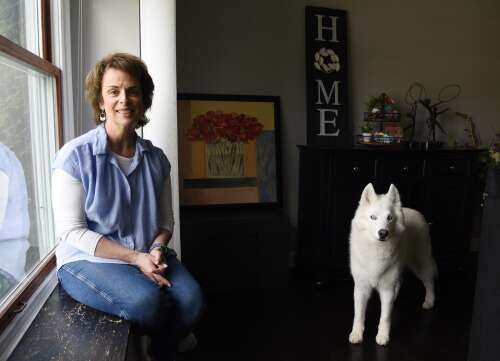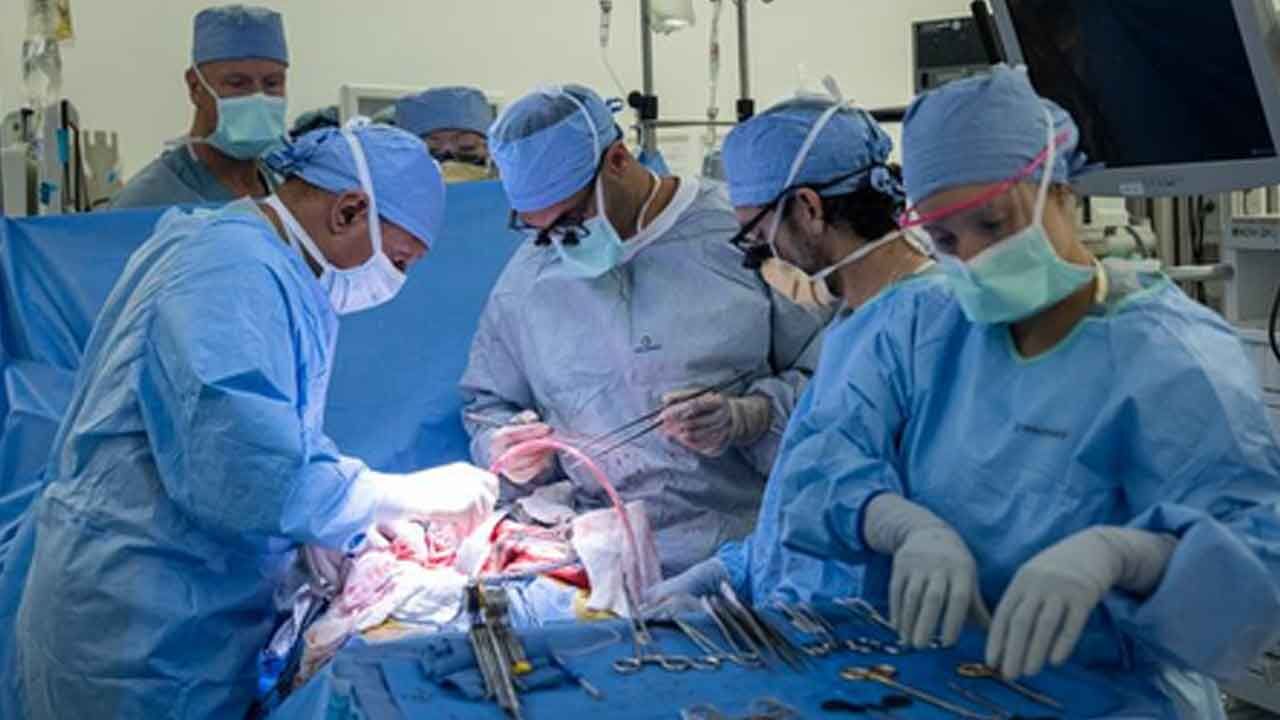Diane Patterson can walk up and down the stairs just fine now, but she used to have debilitating fatigue.
“The only way I can explain it is like you feel like you hit a brick wall, because all of a sudden you need to lay down,” the Buffalo Grove woman said.
Patterson is a COVID-19 “long-hauler.” Researchers still are working to understand the complexities of long COVID — a condition encompassing a laundry list of symptoms — and testing possible treatments.
“It is an amalgam of 200 different symptoms, said Dr. Nirav Shah, Endeavor Health’s associate chief medical informatics officer of AI and innovation. “It could be brain fog and all these neurologic-type issues. It could be cardiopulmonary issues related to exercise intolerance.
“Some people develop new-onset diabetes. Some people lost their hair. Some people develop psychosis,” Shah said. “It’s so many different things.”
Patterson, 59, also has experienced issues with short-term memory and multi-tasking.
“It is hard for me to believe that I’m still battling this three years later,” said Patterson, who got COVID in 2022.
Determined to get better, she participated in a long-COVID clinical trial through Endeavor Health. The hospital system is actively recruiting patients for three ongoing studies.
“I know long-COVID patients personally,” Shah said. “I know them professionally, and they are hungry for something to treat their symptoms.”
Researching long COVID
Why do some people develop long-term symptoms and others don’t? It’s complicated, Shah said.
Some studies suggest there may be an autoimmune component.
Another working theory is “just the sheer damage that COVID causes results in long, persistent symptoms,” Shah said.
He also pointed to “viral persistence.”
“Basically, the virus is replicating in a very low level, so not enough to cause an infection. But it’s essentially reservoired in the body somewhere, and it’s slowly, kind of replicating … and that’s causing persistent symptoms,” Shah explained.
Endeavor Health, formerly NorthShore University HealthSystem, has been part of multiple long-COVID studies conducted through Researching COVID to Enhance Recovery, or RECOVER, a nationwide research program established by the National Institutes of Health.
Shah expects some answers “very soon.” Enrollment in two of the RECOVER studies has closed.
Dr. Nirav Shah
For instance, the RECOVER-VITAL clinical trial has focused on viral persistence and Paxlovid as a possible treatment. The antiviral drug generally is taken for five days in the early stages of a COVID-19 infection. One participant group in the study was given a much longer course for nearly a month.
Three other trials still are seeking patients. RECOVER-ENERGIZE involves those with exercise intolerance. RECOVER-SLEEP is studying how to help alleviate sleep disturbances. And RECOVER-AUTONOMIC is focused on adults who still have autonomic dysfunction symptoms — fast heart rate, dizziness, fatigue — when they stand up from sitting or lying down.
“You probably know someone that has had long COVID, really, if it’s 8% of the population, 20 million people,” Shah said. “Most people get better, but there are these cases where … they just can’t function anymore, and they’re not getting better … that’s what makes these types of studies really important.”
Shah started as the primary investigator on these trials and completed the two closed studies but has transitioned the three open ones to another researcher, though he remains involved.
“In addition to the ones where we’re going to publish soon and try to figure this out, there’s new studies coming out. So they shouldn’t lose hope,” Shah said of those suffering from long COVID, “because there is still a pipeline of treatment targets that we’re funding nationally.”
Seeking answers
Patterson remembers needing to recover from even a short walk.
“Washing my hair was almost too hard to do,” she said.
Patterson has done physical and respiratory therapy and personal training.
“I’ve been constantly working to try anything and everything to get better,” she said. “So I don’t know if it’s that, or just some dumb luck, that over time, some things are getting better.”
“I’m still working on it, trying to get better every day,” says Diane Patterson, 59, who participated in a long-COVID clinical trial through Endeavor Health.
Joe Lewnard/jlewnard@dailyherald.com
Patterson says she’s grateful for “whatever steps forward I have made.”
“I have a great support system … you have to find your person or people that you can work through this with because it’s not fun,” said Patterson, who’s married with two grown children and two grandchildren.
And if other long-haulers are considering whether to participate in a study, Patterson suggests they do it.
Because “the sooner we have answers,” she said, “the sooner we can all move on with our lives.”
• Daily Herald staff writer Jake Griffin contributed to this report.









